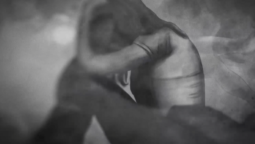Not so long ago, in the Eighties and Nineties, the DJ booth was near the ceiling, behind the lights. It was not on stage. Records were expensive and hard to find. Mixing was hard. You paid $10 for an import single with one song on it and had no sync button to mix it with the other $10 import single. You had to cue with your ears and mix with your hands. It was not uncommon for a club to have one DJ, who played multiple nights, open to close; by themselves. It was a real job.
Today, DJs are rockstars, and everybody wants to be one. It’s on a stage. It is the hair metal of the 2010s. If you have a Macbook Pro and an iTunes account, you are ready to roll. “Bring on the girls! If Paris Hilton can do it, so can I!”
Six months later, reality sets in. You have been booked for a gig. You have friends, and they have friends, and you set a club manager up with [girls/drugs/pirated DVD’s/or, the ever so rare, honest joy of stimulating conversation], however, the gig was from 9 p.m. – 10 p.m., there was nobody there, and you were AWFUL.
So now, should you decide this is the life for you, it is time to:
Practice
Learn to mix. Watch Youtube videos. Enjoy the craft. Learn the simple pleasure of a mix that you didn’t screw up, which sounded cool in your house, or wherever it is you can practice. Mix live. Ditch the sync button. Learn to control the tracks. Learn timing. Listen to mixes recorded live at good parties, by DJs with solid reputations.
Search obsessively for music
You might be playing a Top 40 party, but you can still have a remix nobody has ever heard, or a classic that everybody forgot until they hear you play it. Educate yourself. Listen to multiple genres. Read biographies of artists. Surf the blogs. Learn music theory. If you just want to get on stage and bang the top 20 tracks from Beatport and then get laid in the parking lot, quit. People can tell when you’re faking it.
Be honest with yourself
Record a mix, listen to it and if it is bad, say: “That is bad. I can do better.” Do not lie to yourself. It will get you nowhere. If it is good, ask yourself why, and how it could be improved upon. If you make a mix that you find yourself banging hard in your own car for two weeks non-stop, you might be getting somewhere.
Find some gigs
If you want to be a DJ, you need to do it in front of people, and you need to do it for money. If you suck, don’t ask to play big clubs and don’t ask for a lot of money. Start with small places, and small amounts of money. If you ask for $500 at a club that holds 700 people and you’re awful, you’re done. If you ask for $150 to play for 60 people on a Tuesday, and 30 of them are your friends, well, the owner will probably grade you on a curve, and you’ll have an opportunity to learn what works and what doesn’t. Don’t take shortcuts. Don’t snake other DJs. Charge what you’re worth. If you’re not worth real money, than maybe hang back and play those places when you are.
If you want to play for free, invite people over to your house and do it there. Let people who DJ for a living work the bar scene until you’re ready to get paid. How much to charge is a sticky issue. It’s ultimately up to you, but if the regular guy gets $300 and you go in knowing that,and say you’ll do it for $150, you’re lame. However, if you have a regular little bar gig, and you like the owner, and you don’t have to bring your own gear and you get free dinner, and $150 seems like a perfectly reasonable amount of money to you and helps pay the bills? Don’t second-guess yourself, and maybe just don’t talk to other people about your finances. It’s nobody else’s business how much you get paid but your own. If that comfortable little bar gig turns into the hottest party in the neighborhood after a few months, though…time to ask for a little extra cheese on your burger!
Network/Explore
Go to the places you want to play. Go early, when people are setting up. Meet the staff. Meet the DJs. Meet the promoters, the coat check girls, and the customers. Be a regular. Be helpful. Try to be social, if it is in your nature. Steer birthday parties and such to your favorite clubs. Watch other DJ’s, guest performers, etc. Learn from them how to read a crowd, program a set, and put on a show. Try to study their sense of timing.
Promote
Promoting for a living, or for money, anyway, is a separate business from DJing. You should not be expected to bring people to a party. If you have a network and can get them to show up to see you spin, it might help get you in the door, but they aren’t going to come to every gig you ever do, and if your skills aren’t up, they won’t help you keep the gig.
Make an honest effort to get people to show up, but if you have a guest list of 15, 20, 40 people…it should be a bonus to the person that hired you, not something they expect. If you are promising that you can deliver numbers like that, that isn’t DJing, that’s promoting, and it’s a separate business and a separate negotiation. If you’re a DJ with no experience as a promoter and you’re trying to negotiate a piece of the backend, expect to get burned.
Watch Beat Street
Learn to love the art.






Join the discussion
comments powered by Disqus